ITSC 2023 Workshop on Co-Design and Coordination of Future Mobility Systems
The workshop will take place on Sunday, September 24, in Bilbao, during ITSC 2023.
Motivation
In past decades, cities worldwide have observed a dramatic urbanization.
Today, 55% of the world's population resides in urban areas, and in the next 30 years the proportion is expected to reach 68%
A direct consequence of the population density growth is the increase of urban travel, and of the externalities it produces.
In this rapidly expanding setting, cities have to take important decisions to adapt their transportation system to welcome larger travel demands. This is a very complex task for at least three reasons.
First, cities need to accommodate the changing travel needs of the population, by predicting them, and by ensuring fairness and equity.
Second, designed policies not only have to account for the citizens' satisfaction, but also for their impact on private Mobility Service Providers (MSPs) such as ride-hailing companies, micromobility, and, in a near future, Autonomous Mobility-on-Demand (AMoD) systems.
Indeed, such services gained a considerable share of the transportation market in recent years; e.g., in NYC, ride-hailing companies have increased their daily trips by 1000% from 2012 to 2019. While offering more choices to travellers, these systems operate benefiting from public resources (such as roads and public spaces), are profit-oriented, and often lead to potentially disruptive consequences for the efficiency of the transportation system and for society at large.
In this avenue, cities gain an important, onerous regulatory role.
Third, policies have to be designed while meeting global sustainability goals. It is not surprising that cities are estimated to be responsible for 78% of the world's energy consumption and for over 60% of the global greenhouse emissions (30% of which is produced by transportation, in US). Indeed, sustainability is central in policy-making worldwide: NYC plans to increase sustainable trips from 68% to 80%, and EU plans a 90% reduction of emissions by 2050.
Taken together, the aforementioned perspectives highlight the complexity of this socio-technical problem, and imperatively call for methods to inform and drive policy makers.
In this context, developed methods need to inform the co-design of individual mobility solutions and the associated mobility systems, accounting for a range of heterogeneous stakeholders with conflicting objectives.
We believe that the problem described above can be tackled by adopting a system-level perspective and by explicitly considering interactions between mobility stakeholders (both at the planning, and operational level, e.g., via game theoretical tools).
This workshop will gather experts from transportation, operations research, urban planning, and autonomy to
- Identify challenges and opportunities regarding the aforementioned problems;
- Present promising tools to address such challenges;
- Find interaction opportunities across diverse research communities to unite forces and tackle the problems.
We will have a series of keynote talks.
Check out last year's edition!

Gioele Zardini is a Ph.D. student in Prof. Emilio Frazzoli's group at ETH Zurich, and incoming faculty at MIT in Fall 2024.
He received the B.Sc. and the M.Sc. degrees in mechanical engineering, with focus in Robotics, Systems, and Control from ETH Zurich in 2017 and 2019, respectively.
He worked at nuTonomy (then Aptiv AM, now Motional) and was a visiting researcher at Stanford University and Massachusetts Institute of Technology.
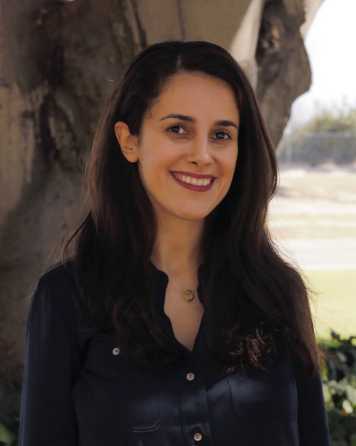
external page Mahnoosh Alizadeh
Prof. Alizadeh joined the UCSB electrical and computer engineering department in January 2017. Prior to that, she spent two years at Stanford University as a postdoctoral scholar. She received her PhD degree in Electrical and Computer Engineering from the University of California Davis in 2014 and her B.Sc. degree in Electrical Engineering from Sharif University of Technology in 2009. Dr. Alizadeh has been the recipient of the National Science Foundation CAREER award.
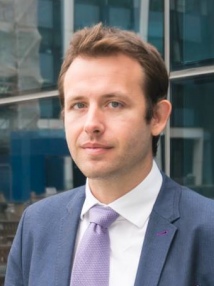
external page Panagiotis Angeloudis
Dr. Panagiotis Angeloudis is Reader and Head of the Transport Systems and Logistics Laboratory at Imperial College London.
His research focuses on the intersection of autonomous vehicles, multi-agent systems modelling, network optimisation and their applications to freight distribution and passenger transportation. His research group specialises in developing high-performance, scalable models that capture the interactions between users, providers, infrastructure and operating regimes. Recent TSL projects have focused on the design of deployment strategies for safe and efficient autonomous transport systems (AVs, drones) for passenger and freight mobility.
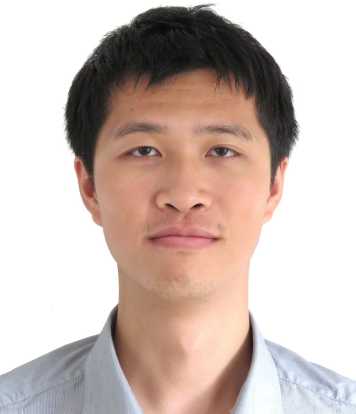
Kaidi Yang is an ETH-trained Ph.D. with experience in transportation, operations research, and robotics. He aims to develop efficient and trustworthy algorithms for the design and operation of future mobility systems, with a particular focus on advances in vehicular technology (e.g., connected and automated vehicles, electric vehicles, etc.) and shared mobility. Before joining NUS, he was a postdoctoral scholar with the Autonomous Systems Lab at Stanford University. He received his Ph.D. from ETH Zurich in 2019, M.Sc. in Control Science and Engineering from Tsinghua University in 2014, and dual bachelor’s degrees in Automation and Mathematics from Tsinghua University in 2011.
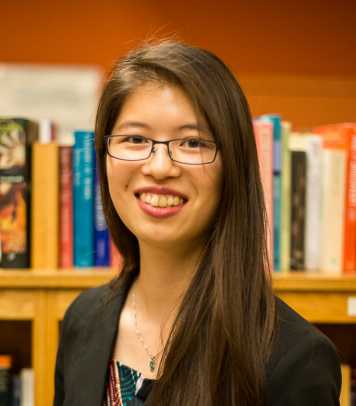
Cathy Wu is an Assistant Professor at MIT in LIDS, CEE, and IDSS. She holds a Ph.D. from UC Berkeley, and B.S. and M.Eng. from MIT, all in EECS, and completed a Postdoc at Microsoft Research. Her research interests are at the intersection of machine learning, decision making, and mobility. Her current work focuses on how learning-based methods can advance emerging mobility systems by better coping with the complexity of decisions and control. She is broadly interested in enabling policy-relevant research by pushing the boundaries of learning, control, and optimization. Cathy has received a number of awards, including the NSF CAREER, dissertation awards, and publications with distinctions. Her work has appeared in the press, including NOVA, Wired, Science Magazine, the MIT Homepage, and TEDxMIT
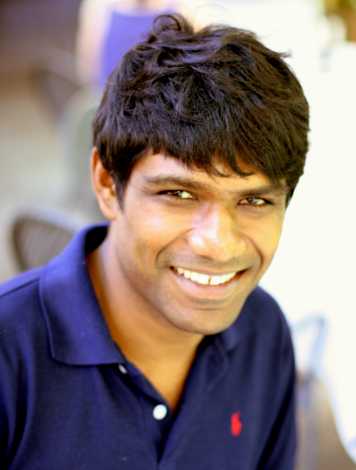
external page Samitha Samaranayake
Samitha Samaranayake is an Assistant Professor in the School of Civil and Environmen- tal Engineering at Cornell University with graduate field faculty affiliations in Operations Research and Information Engineering, the Center for Applied Mathematics, and Systems Engineering. His research interests are in the modeling, analysis and control of networked infrastructure systems with a focus on transportation systems. He is particularly in- terested in developing computationally efficient solution techniques and algorithms that enable practical applications. Prior to joining Cornell he was a Postdoctoral Associate in the Laboratory for Information and Decision Systems at MIT. He completed his Ph.D. in Systems Engineering at the University of California, Berkeley in December 2014. He has worked in the server technologies group at Oracle, the design for test (DFT) group at Synopsys, the transit algorithms team at Google and the French National Institute for Research in Computer Science and Control (INRIA). Samitha received his Bachelors and M.Eng. in Computer Science from MIT and an M.Sc. in MS&E from Stanford University.
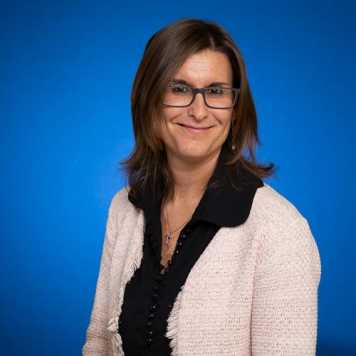
Silvia Siri received the Ph.D. Degree in Information and Communication Technologies in 2006 at the University of Genova. Since 2019 she has been Associate Professor of Automatic Control at the Department of Informatics, Bioengineering, Robotics and Systems Engineering, University of Genova.
Her research interests deal with modelling, optimization and control of complex dynamical systems, in the area of traffic, logistics and energy systems. Most of her research activity has involved modelling and control of road traffic systems, specifically referring to the development of multi-class traffic dynamic models, the definition of optimization-based control schemes, the real-time regulation of freeway traffic systems accounting for sustainable issues. In the area of intermodal freight logistics, her research studies have been focused on the definition of mathematical models and algorithms for the optimal planning of intermodal nodes and logistic networks. A more recent research activity has been related to the definition of optimization tools for the design of electric mobility systems and distributed energy systems.
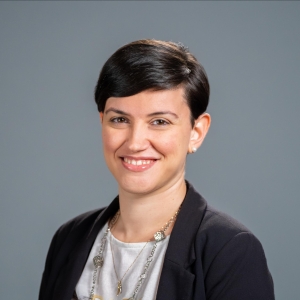
external page Maria Laura Delle Monache
Maria Laura Delle Monache is an Assistant Professor in the Department of Civil and Environmental Engineering at UC Berkeley. Prior to joining the faculty at UC Berkeley, she was a research scientist at Inria in Grenoble, France (2016-2021) and a Postdoctoral fellow at Rutgers University - Camden in the USA (2014-2016). She received her Ph.D. degree in applied mathematics from the University of Nice-Sophia Antipolis, France, in 2014. She is a member of the IEEE CSS Technical Committee on smart cities and of the Standing Committee on Traffic Flow Theory and Characteristics of the Transportation Research Board (NASEM). Dr. Delle Monache’s research lies at the intersection of transportation engineering, mathematics, and control theory.

Gioele Zardini is a Ph.D. student in Prof. Emilio Frazzoli's group at ETH Zurich, and incoming faculty at MIT in Fall 2024.
He received the B.Sc. and the M.Sc. degrees in mechanical engineering, with focus in Robotics, Systems, and Control from ETH Zurich in 2017 and 2019, respectively.
He worked at nuTonomy (then Aptiv AM, now Motional) and was a visiting researcher at Stanford University and Massachusetts Institute of Technology.
His current research interests include the co-design of complex systems (all the weay from future mobility to embodied intelligence), compositionality in engineering, planning and control, and game theory. He is the recipient of the Best Paper Award (1st Place) at the 2021 IEEE International Conference on Intelligent Transportation Systems.
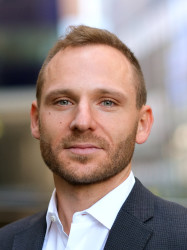
Dario Paccagnan,
Dario Paccagnan is an Assistant Professor at the Department of Computing, Imperial College London since the Fall 2020. Before that, he was a postdoctoral fellow with the Center for Control, Dynamical Systems and Computation, University of California, Santa Barbara. He obtained his PhD from the Automatic Control Laboratory, ETH Zurich, Switzerland, in 2018. He received a B.Sc. and M.Sc. in Aerospace Engineering
from the University of Padova, Italy, in 2011 and 2014, and a M.Sc. in Mathematical Modelling and Computation from the Technical University of Denmark in 2014; all with Honors. Dario’s interests are at the interface between game theory and control theory,
with a focus on the design of behavior-influencing mechanisms for socio-technical systems. Dario was a finalist for the 2019 EECI best PhD thesis award and was recognized with the SNSF Early Postdoc Mobility Fellowship, the SNSF Doc Mobility Fellowship, and
the ETH medal for his doctoral work.

Maximilian Schiffer,
Maximilian Schiffer is a tenured Professor of Business Analytics & Intelligent Systems in the School of Management and a Core Member of the Munich Data Science Institute at the Technical University of Munich. Moreover, Maximilian is an Associate Member of the GERAD. Before joining TU Munich, he was a visiting postdoctoral scholar at Stanford University and a postdoctoral scholar at RWTH Aachen University. He received a Ph.D. degree in Operations Research from RWTH Aachen University in 2017.
As a scholar, Maximilian’s expertise lies in the fields of Operations Research, Prescrip- tive Analytics, Machine Learning, and Data Science applied to a variety of application fields, e.g., transportation problems, supply chains, production networks, and big data. His research currently focuses on electric vehicles, smart city logistics, autonomous sys- tems, interpretable machine learning, as well as innovative applications in supply chain and production management. He is the recipient of several awards, among others the INFORMS TSL Dissertation Prize and the GOR Doctoral Dissertation Prize. His work has been recognized with a best paper awards from the IEEE Conference on Intelligent Transportation Systems and the INFORMS TSL SIG on Facility Logistics, and an Anna Valicek Medal from the AGIFORS.
He is currently serving on the Editorial Boards of Transportation Science, OR Spec- trum, Transportation Research Part C & Part E, and Business & Information Systems Engineering.
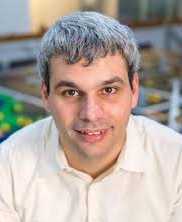
Andrea Censi is deputy director of the Dynamic Systems & Control chair. He obtained a Ph.D. from Caltech. Previously, he has been a research scientist at MIT and Director of Research at Aptiv Mobility (now Motional). He is president of the Duckietown Foundation.
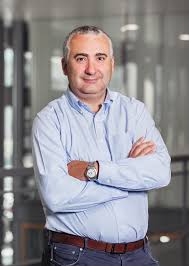
Emilio Frazzoli,
Emilio Frazzoli is a Professor of Dynamic Systems and Control at ETH Zurich, and former CSO of Motional. His main research interest are in robotics, autonomous systems, and intelligent mobility. In acknowledgement of his seminal work in these fields, Emilio has received numerous awards, including the the 2015 IEEE George S. Axelby Award and the 2017 IEEE Kiyo Tomiyasu Award, and has been named an IEEE Fellow in 2019. Emilio has published more than 200 papers in the fields of robotics, autonomous vehicles, and drones. A former full professor at MIT, he directed the research group that first demonstrated an autonomous mobility (“robotaxi”) service to the public, and performed the first analysis of the social and economic impact of such a service, based on real transportation data. In 2013 he founded nuTonomy with Karl Iagnemma, and served as its Chief Technology Officer until its acquisition by Aptiv in 2017.
These entities sympathize with the initiative:

